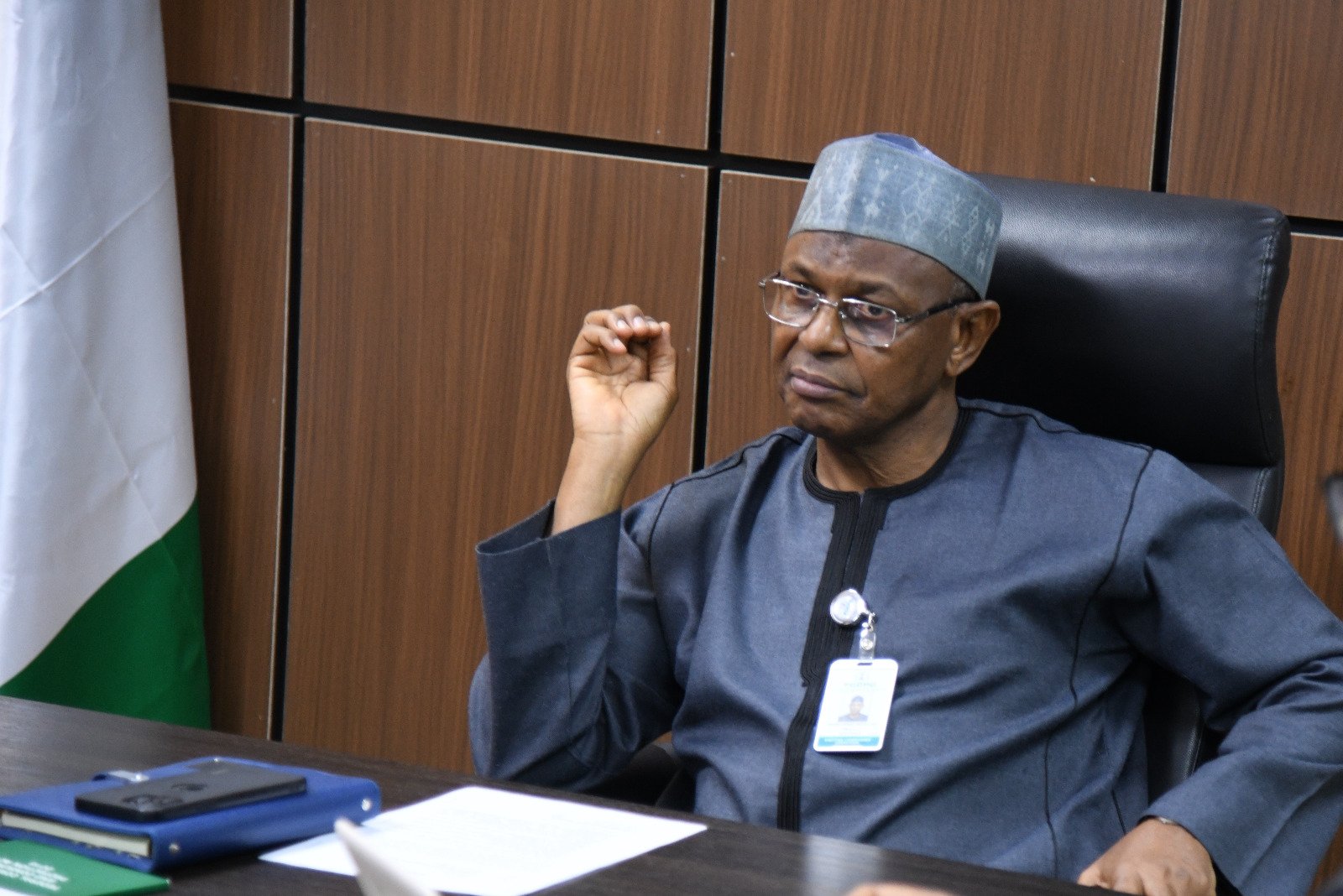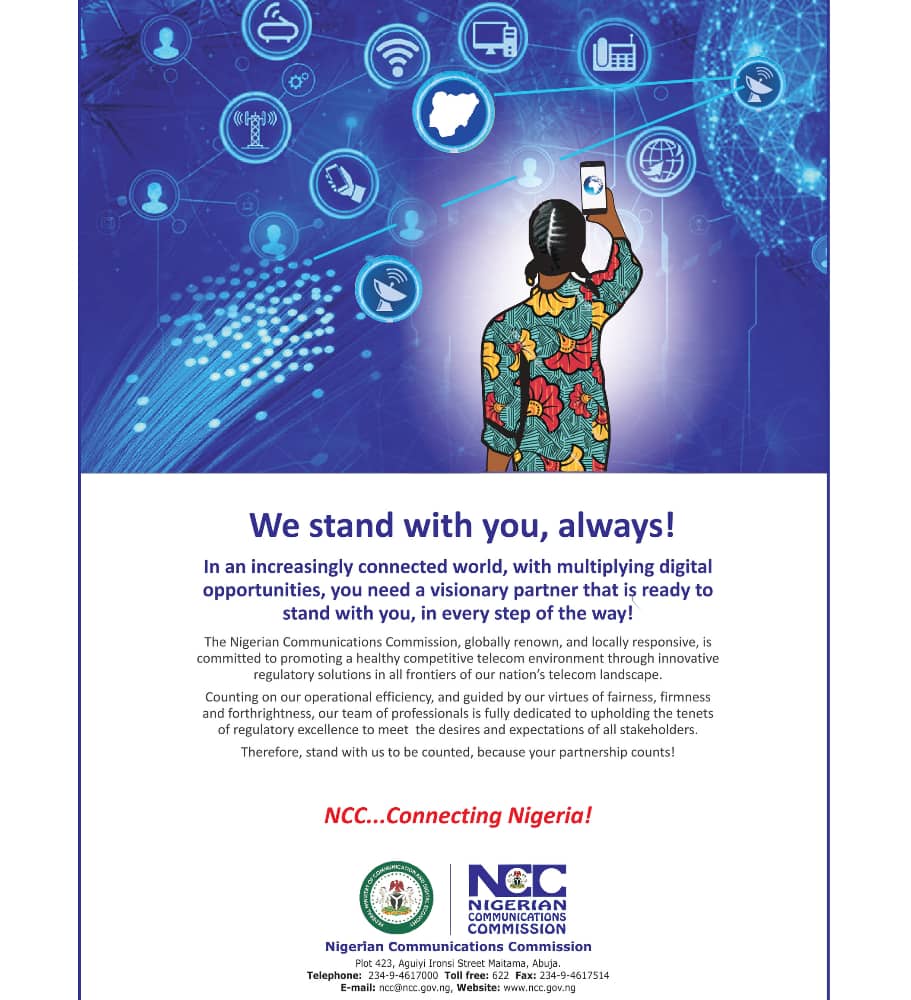
By Miriam Humbe
At a press conference on Tuesday, Acting Executive Vice Chairman/CEO of the Federal Competition and Consumer Protection Commission, (FCCPC), Dr. Adamu Abdullahi highlighted the voluminous achievements recorded by the Commission in the last seven months. Excerpts:
Address By Dr. Adamu Abdullahi, Acting Executive Vice Chairman, Federal Competition and Consumer Protection Commission (FCCPC) at an Engagement with Media Correspondents at Stratton Hotel Abuja on Tuesday, July 23, 2024
Protocols
Introduction:
In January 2024, I assumed the role of Acting Executive Vice Chairman and Chief Executive Officer of the Federal Competition and Consumer Protection Commission (FCCPC), following the exit of the Commission’s pioneer chief executive.
As a substantive Executive Commissioner, Operations, I had prior experience navigating the complexities of the FCCPC.
This enabled me to quickly assume my role and focus on fulfilling the Commission’s legal mandates while aligning them with President Bola Ahmed Tinubu’s Renewed Hope Agenda.
In the last seven months, the Commission actively worked to prevent anticompetitive practices, protect consumers, and foster a competitive market. Our efforts included enforcing the Federal Competition and Consumer Protection Act (FCCPA), reviewing mergers, conducting investigations, and engaging in consumer and business education, among others.
Actions On Fair Food Pricing And Enforcement Against Deceptive Practices:
To address public concerns over soaring food prices, the FCCPC implemented measures to curb price gouging, promote fair competition, and protect consumers. We monitored markets, partnered with stakeholders, enforced pricing transparency, and sensitised consumers.
We also took action against underweight bags of rice, the sale of expired goods, cement price hikes, substandard iron rods, and alleged discriminatory practices in a Chinese supermarket. These efforts underscore the government’s dedication to safeguarding Nigerian consumers and fostering a fair marketplace.
Data Analysis:
The Commission is currently implementing data analysis techniques to systematically analyse consumer complaints
to help in identifying patterns of unfair practices, leading to targeted interventions and improved consumer protection measures.
Digital Market:
The Commission continued to advocate for the rights of Nigerian consumers, particularly in the digital money lending industry, while implementing the Limited Interim Regulatory/Registration Framework and Guidelines for Digital Lending to regulate the activities of Digital Money Lenders (DMLs), otherwise referred to as loan sharks.
These steps include ensuring that all DMLs register with the FCCPC, operate legally and are identifiable, ensure fair treatment of borrowers, transparent loan terms and conditions with no hidden fees, observe a cap on punitive interest rates to prevent exploitation and engage in responsible lending practices to avoid overburdening borrowers.
Investigations/ Enforcement of the FCCPA:
To uphold the sanctity of the Federal Competition and Consumer Protection Act (FCCPA) 2018 and successfully implement its provisions, the Commission diligently prosecuted cases involving offenders of the law. Notably, on Friday, May 17, 2024, the Federal High Court sitting in Lagos delivered a landmark judgment, convicting Dr. Anuoluwapo Funmilayo Adepoju and MedContour Services Limited on all five counts of obstructing an investigation by the FCCPC.
The Court upheld the FCCPC’s broad investigative powers under the FCCPA, ruling that the FCCPA applies to “all undertakings and all commercial activities” within Nigeria, including health services related to consumer protection. This judgment strengthened the FCCPC’s authority to investigate consumer rights violations across all sectors, including healthcare, and serves as a warning to businesses that impede or obstruct regulatory investigations.
In another development, the Federal High Court struck out a lawsuit filed by the Centre for Social Justice Ltd/Gte against the FCCPC in Suit No: FHC/ABJ/CS/1210/2020.
In collaboration with the Nigerian Civil Aviation Authority, the Commission initiated investigations against international airlines over high airfares, leading to the release of their lowest inventories in the Nigerian market, which had been geographically blocked due to trapped funds.
Furthermore, only last week, FCCPC issued a final order and imposed a monetary penalty of $220,000,000.00 (Two Hundred and Twenty Million USD) against Meta Platforms Inc. and WhatsApo LLC over discriminatory practices in Nigeria.
The Commission intensified its engagement with Ministries, Departments and Agencies and stakeholders to sign separate Memorandum of Understanding in compliance with the FCCPA.
Merger Reviews:
The FCCPC conducted a series of merger reviews to prevent anticompetitive practices in mergers and acquisitions, helping to preserve consumer choices by preventing large companies from unnecessarily acquiring smaller competitors and restricting options.
From inception, the Commission has received a total of 294 transactions, out of which 22 were approved in 2024, while 8 applications are currently being reviewed.
Consumer And Business Education:
In its consumer and business education efforts, the Commission carried out targeted programmes as well as sustained its public awareness programmes on different radio stations. These include:
· Brekete Family reality radio programme and FCCPC Hour on Electricity, both on Human Rights Radio 101.1 FM
· Traffic Radio 107.1 FM
· FCCPC – NYSC/CDS Volunteer Group
· NYSC Camp Visitation Awareness Programme
· Commemoration of World Consumer Rights Day 2024
· Secondary Schools Sensitisation Campaign in the North Central geopololitical zone (Plateau, Nasarawa, Benue, Kogi and Kwara states)
· Sensitisation of all tertiary institutions in Abuja, FCT
· Engagement with Consumer Protection Groups and Non-Governmental Organisations
· Market sensitisation campaign in Abuja
· Sensitisation workshops on forceful ripening of fruits, adulterated palm oil. contaminated meat and grains
· Designing of consumer rights charter
The Commission is also carrying out a review of the stand-alone curriculum for consumer education in secondary schools across the country.
Stakeholders Coordination:
To properly coordinate the Commission’s diverse stakeholders to ensure inclusivity and citizen participation in its affairs, the Commission introduced sensitisation conferences for traditional rulers, religious leaders, and other stakeholders to enhance their capacity to serve as champion agents for consumer empowerment within their sphere of influence. The maiden edition was held successfully in Bauchi State in June 2024, while many more are expected to be held across the country soon.
Electricity Consumer Complaint:
It is a well-known fact that inadequate supply of electricity is one of the biggest challenges facing Nigeria, with huge implications for both national economic growth and the well-being of consumers.
Consequently, complaints about poor service delivery by electricity distribution companies (DisCos) are by far the highest category of complaints received by FCCPC.
The most common consumer complaints in the industry include exploitative billing, unlawful disconnection, non-metering of customers, lack of transformers and other salient issues.
Given the relevance of electricity as a critical utility, the Commission prioritised intervention in the industry to tackle prevailing issues and improve service delivery by implementing various programmes and initiatives aimed at promoting transparency and accountability in the sector.
To that end, the Commission, with the support of MacArthur Foundation, hosted two separate Electricity Consumer Complaint Resolution Platforms for four days each in Bauchi and Lagos for consumers under the franchise areas of Jos Electricity Distribution Company and Ikeja Electricity Distribution Company respectively.
The events provided the Commission, the electricity distribution companies, the Nigerian Electricity Regulatory Commission (NERC), and the Nigerian Electricity Management Services Agency (NEMSA) the opportunity to provide on-the-spot resolution to electricity consumer complaints.
In addition, we have continued to routinely resolve electricity and other consumer complaints daily.
Stakeholder Partnerships/International Collaborations:
To strengthen consumer protection frameworks, the Commission collaborated with regulatory bodies and international organisations.
Due to its stellar work in regulating the digital market, including the enforcement against Digital Money Lenders and the investigation of a major social media platform, the Commission has been approached by several development partners, particularly the ECOWAS Regional Competition Authority (ERCA), to conduct market inquiries in the digital market sector.
This has led to further collaboration with sector-specific regulators such as the Central Bank of Nigeria (CBN) and the Nigeria Data Protection Commission (NDPC).
In furtherance of its international collaboration efforts, the Commission signed a Memorandum of Understanding (MOU) with the Russian Competition Authority (FAS).
Tobacco Control/ Monitoring Compliance:
Following a three-year investigation, the Commission is currently monitoring the activities of a major tobacco company for compliance with international conventions, the National Tobacco Control Act, and regulations, and to prevent potential anticompetitive practices.
The Commission has launched a multifaceted campaign to combat underage tobacco use and protect vulnerable populations. Key initiatives in this respect include the “Don’t Burn Their Future” advocacy programme, the “Faith and Fortune” television series, and a retail shop campaign across ten states.
Human Resource Capacity Development:
In its determination to bridge identified knowledge and skill gaps toward enhancing the performance of the staff of the FCCPC who are key stakeholders in the implementation of the government’s “Renewed Hope Agenda”, the Commission has sustained its general training as well as a series of fit-for-purpose training programmes that are aimed at meeting specific needs of professionals in the operation Departments.
Among the training programmes recently implemented are the General Capacity Building on Administrative Processes and Procedures held at the Public Service Institute of Nigeria, Abuja, with virtually all the 309 staff of the Commission as beneficiaries; Workshop on Digital Platforms and Competition Policy for 30 officers; JICA-sponsored Training on Business Competition Law; Fact Checking Course; and Strategic Communication and Media Management Course for 30 officers currently on-going in Abuja
Restructuring Of FCCPC Outstations:
Following a recent on-the-spot assessment tour of the Zonal and State Offices, the Commission initiated measures aimed at restructuring the outstations to make them more efficient and bring the services of the Commission to the doorsteps of Nigerians even at the grassroots.
This is evident in the recent redeployment of certain categories of officers to strengthen the Outstations, improved supply of office equipment to the outstations and the replication of key Headquarters activities at the Zonal and State Offices.
Staff Motivation:
The Commission has demonstrated commitment to regular promotion of staff as and when due, provision of a conducive work environment, as well as pursuit of other staff welfare matters such as healthcare and insurance, all of which are targeted at boosting staff morale for enhanced performance.
Swift Response To Emerging Government Policies:
The FCCPC is sustaining its culture of prompt response to and implementation of emerging government policies, such as the new provisions in the Public Service Rules, and Extant Service-wide Circulars, among others, to keep the Commission constantly in tandem with and abreast of developments in the larger Public Service.
Cutting Down Cost of Governance:
In compliance with the cost-cutting drive of the Federal Government, the Commission recently introduced network printing, an alternative power source leveraging solar panels, among other measures aimed at reducing the cost of governance.
Re-introduction Of Employee Clocking System:
To ensure that government gets value for expenditure on personnel emoluments, the Commission reintroduced the Employee Clocking System. It is intended to enhance the efficient management of staff attendance records, to enforce strict compliance with Government policy on official working hours.
Enhancement Of Access Control:
The Commission has also initiated measures to enhance access control in and around the FCCPC premises, ensuring adequate protection of lives and property. The access control measures include security checks as a precondition for granting visitors and staff members access to the Commission’s premises.
Conclusion:
As you can see from the foregoing, the Commission has been working tirelessly to promote competition and protect consumers to create a vibrant economy that benefits both businesses and Nigerians.
Gentlemen of the press, on behalf of the management and staff of the FCCPC, I must at this point extend our deepest gratitude to you for your unwavering support throughout the first half of 2024.
Your dedication to disseminating information about our activities has been instrumental in raising public awareness about consumer rights and promoting fair market practices in Nigeria.
Through your insightful reporting, you have empowered consumers and enabled the FCCPC to achieve significant milestones in protecting Nigerians from exploitation. We look forward to continuing this productive partnership in the months ahead.
Thank you for your attention.


